In This Issue:
- What's in a Name?
- Q&A With Joanna Boisen
- Celebrating WEB
- The Alliance for International Women's Rights
- A Longstanding Dream Has Come True
- From Our Founder Community
- Opportunities
What's in a Name?
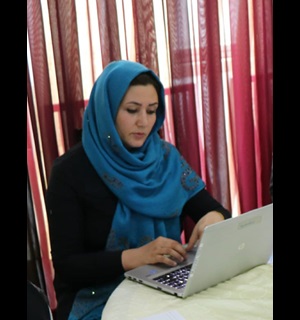
by Najiba Azizi
Imagine that, as a woman, you could not be publicly identified by your own name, but only by your relationship to a male relative (as a wife, daughter, granddaughter, sister).
Members of the Project W team have the privilege of mentoring some of the most remarkable women we know: women in Afghanistan who are engaged in a heroic struggle to ensure the rights of women in that country. One of our mentees, Najiba Azizi, shares in her own words how a grass roots movement has achieved a signal victory for Afghan women and how the answer to the question "Where is My Name?" will have a profound impact on the place of women in Afghan society.
Throughout human history, women have had fewer rights than men to participate in power, politics, economics, and culture. In modern societies, women's struggles for their rights have brought many positive changes for them. But not in countries like Afghanistan where law, culture and religious perceptions have established gender discrimination as a woman's destiny.
Despite the positive changes and achievements of the last two decades in the field of women's rights in Afghanistan, many challenges still stand in the way of women. Censorship of a woman's identity, which is rooted in the country's history, is one of the biggest challenges facing Afghan women. In traditional Afghan society and in many parts of the country, calling women by their own names is considered a "disgrace." Even in wedding cards, instead of the bride's name, her father's surname is used. Even on the tombstone and condolence notice of a deceased woman, instead of her name, she is only identified as "wife" or "mother." In some remote areas, most people do not even know the names of their mothers and grandmothers. And, identity censorship is not only a function of custom and tradition in Afghan society, but also of law. Under the Afghan Civil Registration Law, in order to receive an ID card, the name of a person's grandfather is required but not the name of the person's mother.
There is no basis in Islam, which is the official religion of Afghanistan, for identity censorship even though some people think that is the case. In historical and religious texts of Islam, the Prophet Muhammad has been introduced by the name of his father Abdullah and by the name of his mother Amina, and the use of the name Amina has never been considered unprincipled. The name of the Prophet's daughter and the names of the wives of the Prophet have always been mentioned in religious texts.
Apart from humiliating and devaluing women, identity censorship has created problems for them, especially single mothers. A widow or a woman separated from her husband cannot obtain a passport or ID card for her children without the cooperation of her husband or husband's family. In Afghanistan, an ID card is required for almost every important act in society, including registering for school and making a legal claim.
An advocacy campaign was sparked in Herat province around 2014, when a single mother failed to obtain an ID card for her son, and her son was barred from taking the university entrance exam that year because he did not have an ID card. In 2015, a number of women's rights activists in Herat launched rallies and advocacy campaigns. Then, with the introduction of electronic ID cards, and government controversies over the issue of ethnicity in ID cards, women's rights activists demanded that the mother's name be included in the ID card and the "Include My Mother's Name in my ID Card" campaign was launched on social networks. Some men, including some well-known politicians and artists, joined this campaign, using hashtags and mentioning their mother's name on social media. In 2017, a number of girls in Herat province launched the hashtag #WhereIsMyName, which was widely supported inside and outside of Afghanistan and became one of Afghanistan's most popular hashtags on social media.
Fortunately, these advocacy campaigns and demands by women's rights activists brought the issue to the attention of the government, and a number of members of parliament began using the hashtag and tried to change the law. Finally, on September 1, 2020, the Afghan cabinet's legal committee headed by one of the country's two Vice Presidents, Sarwar Danish, approved a proposal to amend the census law to include the mother's name on the national identity card. A few weeks later, the President of Afghanistan signed the amendment and it went into effect. The amendment changes the definition of identity — the new definition of identity now includes the mother's name in addition to the person's name, the father's name and date of birth.
The inclusion of the mother's name in the ID cards creates a window of hope for single mothers. The mother's name in a person's identity card proves the legal relationship between mother and child.
However, despite this positive step towards respecting a woman's identity and breaking the taboo of censorship of a woman's identity in society, the problem for single mothers still remains. According to common procedures in Afghanistan, for a child to obtain an ID card the child must show the ID cards of his father, grandparents and paternal relatives. We hope that women's rights activists will not be satisfied with the inclusion of the mother's name in the ID card, but will continue their efforts and advocacy campaigns to fight the roots of the problem which are the legal, cultural and religious norms that treat women in Afghan society differently than men.
Najiba Azizi was born in the city of Herat in the western part of Afghanistan. After the fall of the Taliban regime and despite family opposition, Najiba began her studies, and in 2009 obtained a bachelor's degree in law and political science at the university in Herat Province. Since then, Najiba has worked for women's rights with various human rights institutions and organizations in Herat.
Read more below about Alliance for International Women's Rights, the organization that has introduced members of the Project W team to amazing Afghan women like Najiba, and learn about another mentee's story.
Q&A With Joanna Boisen
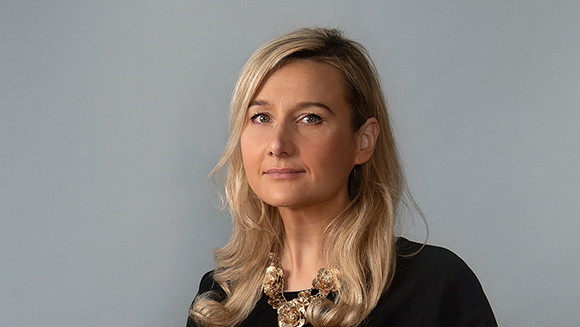
Joanna Boisen is Davis Wright Tremaine's Chief Pro Bono and Social Impact Officer and in that role leads the firm's commitment to be the voice for the unheard, the champion for the unseen, and the access point to the justice system for the most vulnerable and marginalized. Her passion for changing lives for the better, improving the legal system, creating good precedent, and balancing the scales of justice is unparalleled. We asked Joanna what drives her and why it is more important than ever that we all share her mission.
Q: You have devoted your entire legal career to pro bono and social Impact work. What inspired you to take that route?
My family emigrated from northern Poland when I was six. My father worked with Lech Walesa, the leader of the Solidarity Movement, to help abolish Communism in Poland. His involvement made it unsafe to stay in Poland, so we fled the country and landed in Federal Way, Washington, where my uncle worked putting together mobile homes (that would become my dad's first job in the U.S.).
My first impression of America was one of awe. I was in awe that all the food was free (I didn't realize we were at food banks), I was in awe that people recycled clothes (we got all of our clothes at the Salvation Army), and I was in awe of the human compassion and kindness my family was shown as we navigated poverty and uncertainty. My parents – in their early thirties, with three small kids, no college education, and very limited English – benefited tremendously from the good will of others. We all did.
And despite the language, poverty, education, and cultural barriers, they eventually became serial entrepreneurs; truly, their picture belongs next to Webster's definition of "The American Dream." They emphasized education and made it possible for me and my siblings to have meaningful lives in the U.S. – my brother Greg is a patent attorney at Amazon, my sister is the Vice Superintendent for Catholic Schools in Washington State, and I have the best job in the legal industry helping others do good in the world for a living.
My childhood, though at times difficult and uncertain, has allowed me to have a special understanding of the struggles faced by marginalized and underrepresented communities; to have empathy for those who, due to various barriers, cannot advocate for themselves; and to relate on a deep personal level with the importance of helping everyone access justice, not just those who can afford it.
It's helped me to be a better person and a better advocate.
Q: We are in the midst of multiple crises — a pandemic and a national reckoning with the consequences of systemic racism. Yet, everyday ordinary people are carrying out extraordinary acts of courage, kindness and selflessness. Can you share a story of one of these heroes who has inspired you?
It's too bad you've asked me for a couple of sentences and not a novella, because there are so many moving examples of everyday heroes helping those in need. One example that comes to mind immediately is that of Riley Lagesen, a Davis Wright Tremaine partner who helped an entire industry at a time when no one else knew what to do, or how. When the pandemic hit, the restaurant industry immediately felt the impact. It all seemed to happen so quickly. Overnight, two-thirds of all restaurant employees lost their jobs; no one knew how best to help the eight million furloughed and laid-off employees who were suddenly out of work, unable to pay for food, rent, or support their families. But Riley's reaction was different; he felt the sadness and urgency, too, but instead of panicking, he figured out a plan. He picked up the phone and called his friend and celebrity chef, Guy Fieri, and mobilized to get the Restaurant Relief Fund off the ground. This fund provided much needed financial support for an entire industry at a critical time; to date, more than 60,000 people have applied, and the fund has given out about 20,000 grants. That's pretty remarkable. When they say "not all heroes wear capes," they're talking about people like Riley.
Q: There is so much need right now – in the world, in our country and in our own backyards. What initiatives are you seeing that are having particularly effective results?
On the legal front, we're seeing virtual legal clinics, corporate initiatives with a broad reach, and large-scale efforts launched by qualified legal service providers and 501c3s dedicated to systematic policy change and justice.
Q: Pro bono work is generally legal work done without charge by lawyers. Whether or not we are lawyers, what can each of us do to make an impact?
That's correct, pro bono has a special definition under the Rules of Professional Conduct that govern attorneys' behavior and encourages aspirational service, but anyone can participate in community service and social impact.
To make an impact, all that is required is to give of your time and talent to causes, communities, and matters that mean something to you. Ask yourself, what do I care about? Who do I want to help? How can I be the most helpful advocate for at-risk individuals and in-need communities? You will approach that work with a special passion and interest, and you will improve communities and change lives for the better, and forever.
I was once a direct benefactor of this impactful volunteerism, and without it, I wouldn't be where I am today.
Celebrating the Female Founders of Project W's Women Entrepreneurs Boot Camp: 2020's Virtual Cohort
Like everything that has been affected by the global pandemic, Project W's Women Entrepreneurs Boot Camp (WEB), a program that aims to help female-founded companies scale from Seed to Series A readiness, went forward with a notably different format this year. We capitalized on the advantage afforded by a broader reach by focusing on three specific industries in lieu of our historically industry agnostic program. A virtual platform allowed us to enlist a faculty of industry experts and investors from around the world to create an impactful and targeted program different from past years. We also partnered with a number of like-minded organizations who support Project W's mission to achieve gender equity in the startup ecosystem.
Leveraging both our own network and the exceptional reach of our faculty and partners, we successfully recruited three impressive cohorts of female founders innovating in Cybersecurity & Data Management, Plant-Based Proteins, and fintech and designed programs tailored to each industry. The three cohorts met on separate days and discussed pain points and obstacles specific to their space with leading industry experts, after which they received targeted pitch feedback from investors. WEB culminated with all three cohorts participating in an interactive Master Class led by gender equity expert Dr. Dana Kanze designed to help the founders build the skills necessary to interrupt the cycle of implicit bias faced when pitching to VCs.
Our three cohorts left WEB armed with a powerful arsenal of tools, resources and connections that will help them take their companies to the next level of success. As always, the Project W team came away inspired, energized and more resolved than ever to continue our work to achieve gender equity in the startup ecosystem, C-Suite and legal profession. Please click the industry links above to learn more about the incredible women of 2020's WEB whose companies are creating solutions to problems, undoubtedly changing our world for the better.
The Alliance for International Women's Rights
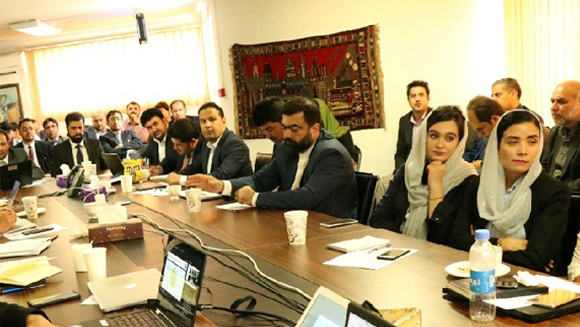
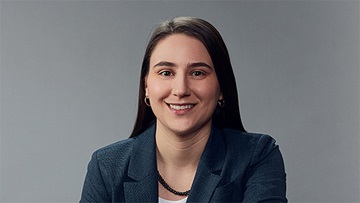
by Alicia LeDuc, Associate, Davis Wright Tremaine
It was a usual Thursday morning mentor session until my mentee told me the buildings near her work office in Kabul had been bombed, causing the ground to shake, window glass to shatter and co-workers to hide in coat closets fearful they were about to die. "It's OK, I am fine," she reassured me over and over. "I am fine, I am safe. Let us continue with the session." So we did, and spent the next 45 minutes taking turns reading alternating paragraphs of the next chapter in Lean In to help Zuhra flex her professional English while gleaning leadership perspectives from American businesswomen.
I met Zuhra Hakim two years ago through the Alliance for International Women's Rights (AIWR) professional mentorship program. AIWR is a small, volunteer-run, U.S. based not-for-profit organization with a mission of supporting women leaders in developing countries, with a focus on Afghanistan. AIWR recruits women attorneys, including members of the Project W team, to volunteer as mentors to Afghan women leaders working to enhance their skills and receive professional support to further develop and thrive in their careers.
AIWR recognizes that despite enormous obstacles, there are very strong and ambitious Afghan women who are pushing to obtain higher education and, often through opportunities provided by governments or NGOs, secure meaningful work in organizations working for women's rights. AIWR has helped increase the capacity of senators, women's rights attorneys, medical doctors, judges, prosecutors, and law professors, leading to their appointment to roles at prominent organizations including the UN, Oxfam, IDLO, the World Bank, major universities, and the country's judicial system.
In Zuhra's case, her father was a University professor who prized education and supported her in studying through a Master's degree from Kabul University. She then leveraged a position with the United States Agency for International Development (USAID) to build capacity in leading industry conferences and instituting business policies enhancing diversity and inclusion for women in the workplace. Soon she was the Senior National Gender Officer for the World Bank Projects in Afghanistan. It was at this point I e-met Zuhra and began our weekly Skype sessions. Within a year, she had enhanced her skills and ascended a rigorous vetting process to be named the first woman Head of Division of Afghanistan's Citizen's Charter National Priory Program, overseeing the implementation of gender-sensitive economic development throughout the country. She is engaged to an ambitious, intellectual Afghan man who supports her plans to obtain another Master's degree overseas and continue her work supporting the Afghan people. She is in her mid-twenties, and nothing short of incredible.
But despite how effortless her persistent joyful demeanor may be, how easily she connects with people and navigates paradigms, how rigorous and daring and determined she is, downplaying recurring traumatic violence in a city torn between tradition and progress, the reality is that broader social constructs, cultural traditions, and fear of westernization are immense forces working against professional, eager women like Zuhra, attempting to dampen their progress from almost every angle. Male leaders in rural communities rarely accept to meet with Zuhra and her team during scheduled government trips, or even allow women to sit at the table with men. She must take precautionary measures on social media and in public to enhance safety from reprisal or attacks from strangers. On top of these persistent pressures, the recent American pull-out and treaty with the Taliban, which leaves the Afghanistan government to negotiate with the Taliban, foreshadows that progress may be difficult to retain. Many Afghan women worry about their social status after the Taliban takes part in the government, and that all the efforts regarding the improvement of women in society will be useless. But still she persists, mentoring me and many others in a new dimension of the meaning of resiliency.
Against this backdrop, I winced one session as I read aloud a Lean In passage framing Afghan women as "receiving little or no education" and "treated as the property of their husbands," knowing what I do of Zuhra, and others in AIWR, and how fatalistic and restrictive the description is and how it downplays the significant progress Afghan women are creating for themselves and pushing for on behalf of others. It is hard to "lean in" on a table at which you are prohibited from sitting. Zuhra embodied Shirley Chisholm's advice and brought her own metaphorical chair to seat herself at the table against resounding protest. To this day, she is often the only woman in the room. She is convinced that soon she will not be, as young Afghan women continue to push for progress just as she is doing. I believe her.
A Longstanding Dream Has Come True
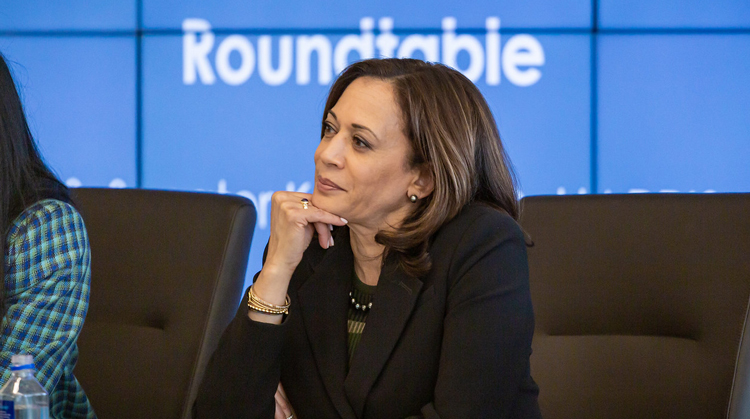
We will have a woman in the White House, and a woman of color. As Kamala Harris said in her eloquent victory speech, "Black women, Asian, white, Latina and Native American women throughout our nation's history…have paved the way for this moment… Tonight, I reflect on their struggle, their determination and the strength of their vision—to see what can be unburdened by what has been—I stand on their shoulders."
And Madam Vice President-Elect, with joy, with hope and above all gratitude, all of us stand on your shoulders.
From Our Founder Community
Undock is inviting fellow designers + builders to engage with its public beta! On November 12th at 1pm ET, Undock is unveiling Undock Scheduling and inviting members of the tech community to build out in the open with us. A product by the people for the people. Learn how our company is reimagining launch events and make sure you don't miss it. Complimentary registration here.
